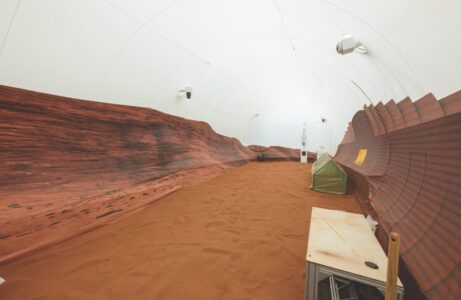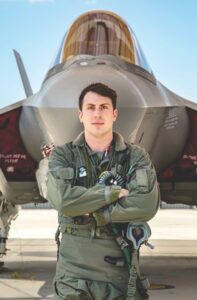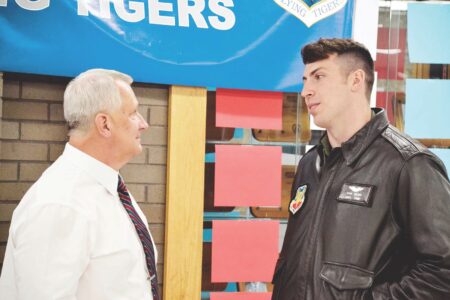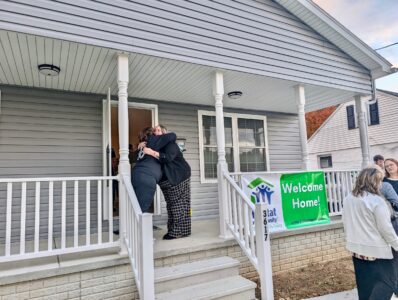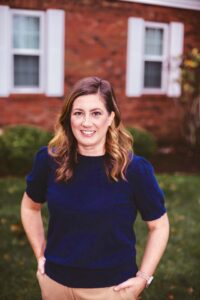Out of this world: Williamstown man chosen to lead simulated Mars mission
- This is inside the Crew Health and Performance Analog where volunteers headed by Ross Elder of Williamstown will simulate living on Mars. The mission will develop information for future missions to Mars and beyond. (Photo provided)
- Ross Elder of Williamstown, who will command a simulated mission living on Mars for 378 days. The mission begins Oct. 19. (Photo provided)
- From left, Vincent Elder and his son, Ross, at a Veterans Day event in November 2018 at the Washington County Career Center. Ross will lead a 378-day simulated mission to Mars to develop research for future manned missions to the Red Planet. (File photo)
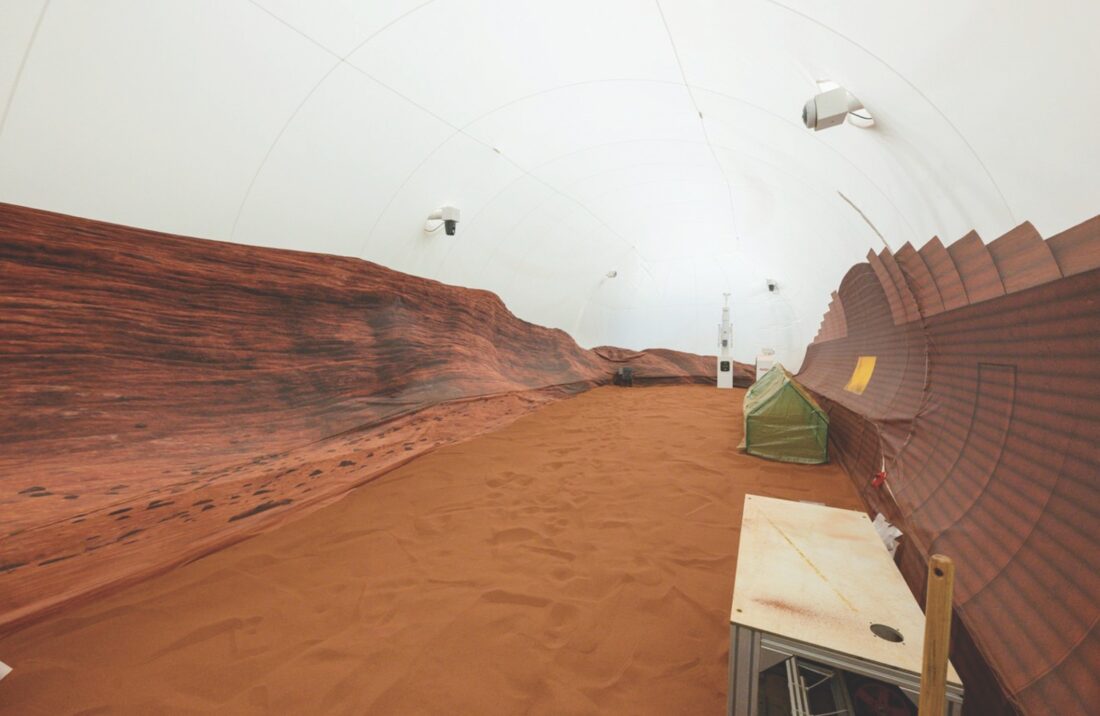
This is inside the Crew Health and Performance Analog where volunteers headed by Ross Elder of Williamstown will simulate living on Mars. The mission will develop information for future missions to Mars and beyond. (Photo provided)
PARKERSBURG — A Williamstown man will lead an Earth-based simulation of a Mars mission that will last for more than a year.
Air Force Maj. Ross Elder, the son of Vincent and Tamy Elder, will lead researchers who will live inside a habitat at the NASA Johnson Space Flight Center in Houston where the 378-day simulation will develop data for manned exploration of the Moon, Mars and beyond.
Elder said his friends and co-workers suggested he apply.
“Being known for having an unshakeable passion for space exploration and a love for working with small teams in high-stakes missions, they considered me the right fit,” Elder said. “I figured it was an excellent opportunity to become both the test subject and the tester, ultimately providing data for future crewed deep-space exploration missions.”
The selection came after an extensive process, he said.
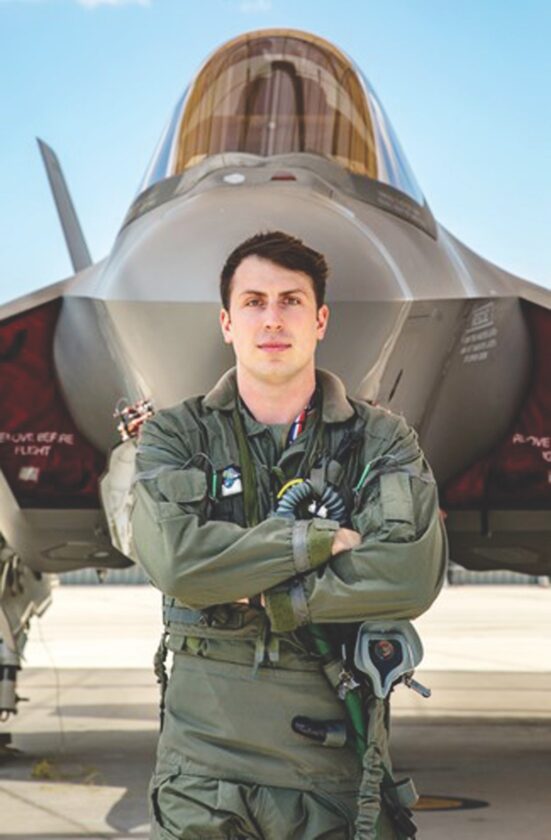
Ross Elder of Williamstown, who will command a simulated mission living on Mars for 378 days. The mission begins Oct. 19. (Photo provided)
“I am humbled and honored to be selected as the commander of the crew,” Elder said. ” I look forward to applying my leadership, test piloting, and engineering experience, while developing my team dynamics skills working with our exceptionally capable crew, mission control and support teams.”
The researchers in the Earth-based Crew Health and Performance Analog, dubbed CHAPEA by NASA, will enter the 1,700 square foot Mars Dune Alpha Habitat on Oct. 19 where they will live and work like astronauts.
Human health and performance factors will be evaluated.
The crew will face resource limitations, equipment failures, communication delays, isolation and confinement and other stress factors including extravehicular activities.
“I wholeheartedly expect to see several challenges arise throughout the mission, including isolation and confinement, simulated extravehicular activities, resource limitations, simulated equipment failures and time delayed communications,” he said.
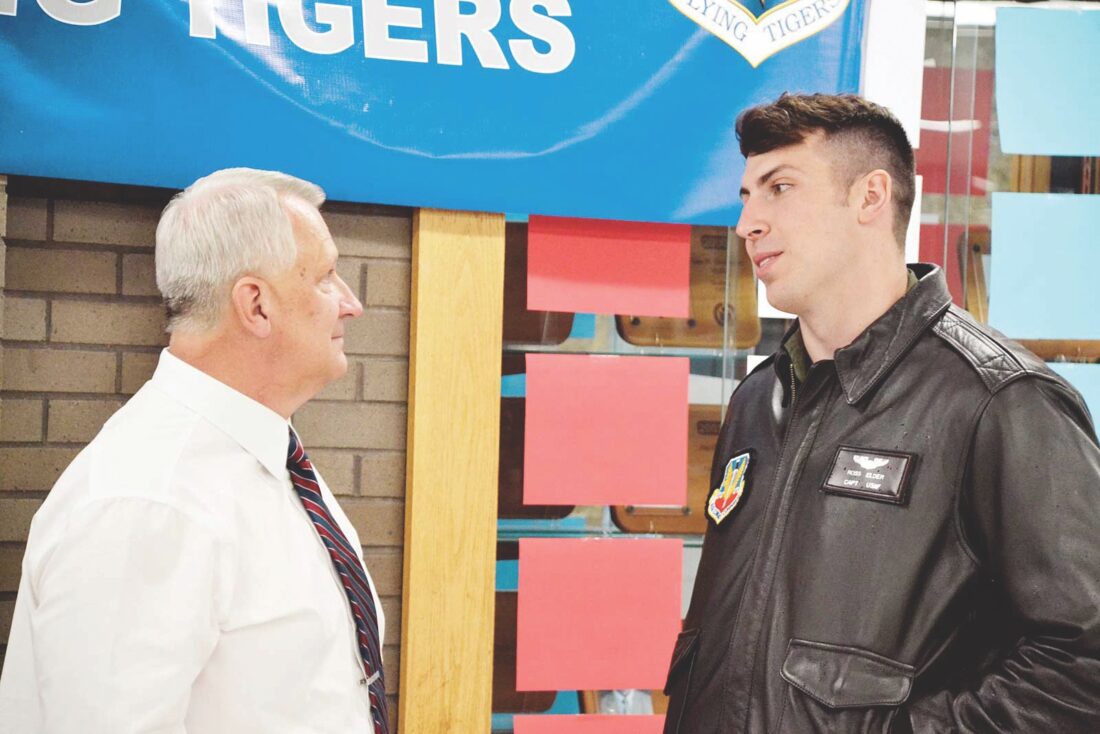
From left, Vincent Elder and his son, Ross, at a Veterans Day event in November 2018 at the Washington County Career Center. Ross will lead a 378-day simulated mission to Mars to develop research for future manned missions to the Red Planet. (File photo)
“Because the crew is replicating living on the surface of Mars some 250 million miles away, communications with Earth can be delayed by approximately 22 minutes each way and may be entirely blocked. Because of this, we may be unable to expect input from Mission Control back in Houston when time-critical emergencies arise,” Elder said. “Therefore, it is critical for the crew to rely on our teamwork, skills, decision making, and quick action to ensure the safety and success of the mission.”
In preparation for the mission, Elder said he was treating it like a military deployment.
“I packed my bags and squared away legal, financial and family affairs,” he said.
The crew is now in training at the Johnson Space Center, he said.
“Here we are getting a crash course in all things related to the mission, our roles, systems, spacewalks, and more,” he said. “But most importantly, we are getting time to develop our crew dynamics and practice countermeasures for the stressors to come, to include the long isolation and confinement ahead.”
Elder wouldn’t turn down being a member of a future flight to Mars.
“Although this mission is an analog simulating the stressors of a Mars environment, the team recognizes it as a crucial step in the incremental, iterative process of research, development and test in hopes of one day sending humans on a real mission to Mars,” Elder said. “Should I get the opportunity to be a part of that future crew, I would gladly accept the challenge. For now, I am ecstatic to be playing a role in the scientific rigor that inches us closer to becoming a multi-planetary species.”
His parents went to Houston for family day when the four chosen for the mission could spend time with each other before training and the mission began.
“We’re definitely very proud of him for all the things he has done,” Vincent said, adding Ross has had aspirations of being an astronaut since he was a child.
“It’s been kind of like a life-long dream for him,” Vincent said.
Ross wrote a poem about his dreams in grade school, Vincent said.
His parents will have the ability to communicate with their son during the mission, but by email, Vincent said.
“The messages will take 22 minutes to get there and 22 minutes to get back after he sends them,” he said.
Elder is an Air Force experimental test pilot in the United States Air Force. In 2021, he was the second West Virginian, the first being Chuck Yeager who broke the sound barrier, to be selected as a test pilot for the Air Force.
He was the director of operations of the 461st Flight Test Squadron and has flown more than 35 military aircraft, accumulating more than 1,800 flying hours, including 200 combat hours, primarily in the F-35, F-15E/EX, F-16 and A-10C.
Elder has a bachelor’s of science in astronautical engineering from the U.S. Air Force Academy, a master’s in mechanical engineering from the University of Colorado at Colorado Springs and a master’s degree in flight test engineering from the U.S. Air Force Test Pilot School at Edwards Air Force Base in California.
The other researchers in the simulation are Ellen Ellis, Matthew Montgomery and James Spicer. Alternates are Emily Phillips and Laura Marie.

